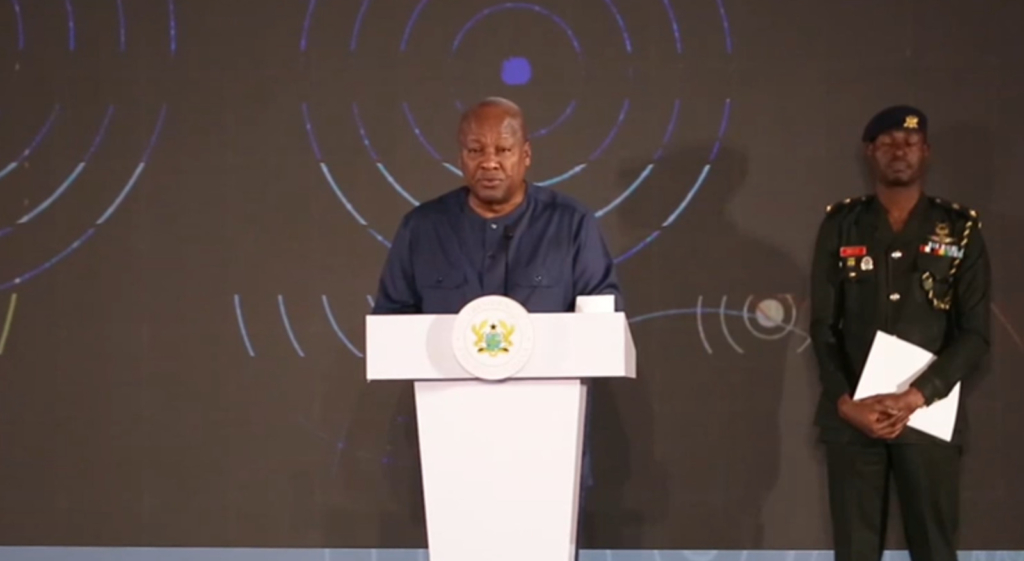President John Mahama says his administration is introducing stricter controls on the importation of excavators as part of a renewed national effort to clamp down illegal mining, commonly known as galamsey.
Speaking at the Mining in Motion Conference in Accra, the President revealed that a new policy, “No Permit, No Excavator” will soon take effect to prevent mining equipment from entering the country without proper authorisation.
“We will track excavators, as the Minister said, in order to know whether they are being used for illegal mining or not,” President Mahama explained. “We intend to change the permitting regime. Ghana has more excavators in this country than in the whole of Africa.”
He added that, under the new system, “You will not be allowed to import an excavator or put it on a ship unless you get a permit. Mining cannot be sustainable unless it is also responsible.”
The President warned that environmental destruction, polluted water bodies, and displaced communities are not unavoidable consequences of mining, but rather symptoms of poor oversight.
“Environmental degradation, water pollution and community displacement are not inevitable by-products of mining. They are the consequences of poor governance and enforcement,” he said.
To address this, President Mahama said his administration is “strengthening environmental, social and governance frameworks across the mining sector.” These reforms, he noted, will also include a ban on toxic substances such as mercury in gold processing, and a requirement for mine sites to be rehabilitated after use.
He stressed that both small- and medium-scale miners must be protected under this new structure.
Also speaking at the conference, the Asantehene, Otumfuo Osei Tutu II, delivered a warning against the ongoing damage caused by illegal mining.
“The pollution of our water bodies, the destruction of our forest space and the degradation of our virgin lands cannot be allowed to continue unchecked,” he stated. “They exasperate the destruction of our environment and multiply our vulnerability to the effects of climate change.”
The Asantehene said the country must face the fact that “a cocktail of regulatory failures, political miscalculations and corruption” has made the galamsey crisis more difficult to resolve.
However, he struck a note of optimism, urging industry leaders and policymakers at the event to work together for lasting solutions.
“There’s no issue here which is insoluble,” he said. “We have an opportunity to calmly dissect the policy options and tools available to deal with the problem. I feel sure it is within the capacity of this gathering of industrial experts, businesses and policymakers to fashion out solutions that work for the good of the nation.”
DISCLAIMER: The Views, Comments, Opinions, Contributions and Statements made by Readers and Contributors on this platform do not necessarily represent the views or policy of Multimedia Group Limited.
DISCLAIMER: The Views, Comments, Opinions, Contributions and Statements made by Readers and Contributors on this platform do not necessarily represent the views or policy of Multimedia Group Limited.

